Partner Schools in the Erasmus+ Eco-systems of OSS Project is Set to Make a Big Social Impact
Erasmus+ Eco-systems of Open Science Schooling Project, with Wittenborg as the project coordinator, is progressing along impressively. During the last few months, partner schools have been actively working through their missions and all have borne successful results.
The open science schooling (OSS) approach is based on young students learning science through science missions carried out in the communities. The ultimate mission of the project is to help secondary schools and science teachers change traditional science teaching into science learning through science missions with collaboration and involvement of other members in the communities such as government organizations, NGOs, businesses, parents and communities.
During the last virtual meeting held on 5th October 2021, each of the four project practice partners presented the completion of their first project missions. The outcomes derived from project missions of all four partners were impressive and applaudable as the missions not only enhanced the learning of science on the part of the students but also brought big social impact on the general community and society. Below are snippets of project deliverance of the partner schools.
For Pasvalys Levens Primary School (Pasvalio Levens Pagrindine Mokykla) from Lithuania, its project mission is about bees and butterflies. The last 20 years have seen a decline in bee and butterfly populations and possible reasons are attributed to intensive agriculture, massive use of pesticides and climate change. The team’s mission is to encourage the setting up of bee and butterfly-friendly gardens in homes, schools and public areas in the town of Pasvalys. The team managed to get sponsorship from the Darius Agro company who agrees to provide the seeds and other necessary materials for the gardens as well as promoting their mission amongst farmers in the town.
The mission was so successful that farmers around the area bought the idea and started reducing the use of harmful pesticides and herbicides on their fields. Another big agricultural seed-producing company called ‘ASEJA’ also supported them by sending boxes of seeds of plants which are bee and butterfly-friendly. In order to promote their mission and to increase community interest and involvement, the team carried out outdoor activities such as butterfly outdoor painting and drawing activity not only in their own community but in neighbouring communities too.
The team members commented, “We are proud that our mission is meaningful for the community and environment and we have developed connections with the community partners. The idea of attracting and preserving pollinators met so much support that one of the grateful bee keepers Vaidas Baliunas awarded the team with 10 liters of honey. The honey is still waiting for the winners of Butterfly drawing competition and for the best photographs taken in the households and homesteads. We are truly grateful to Erasmus+ Project for this opportunity and support.”
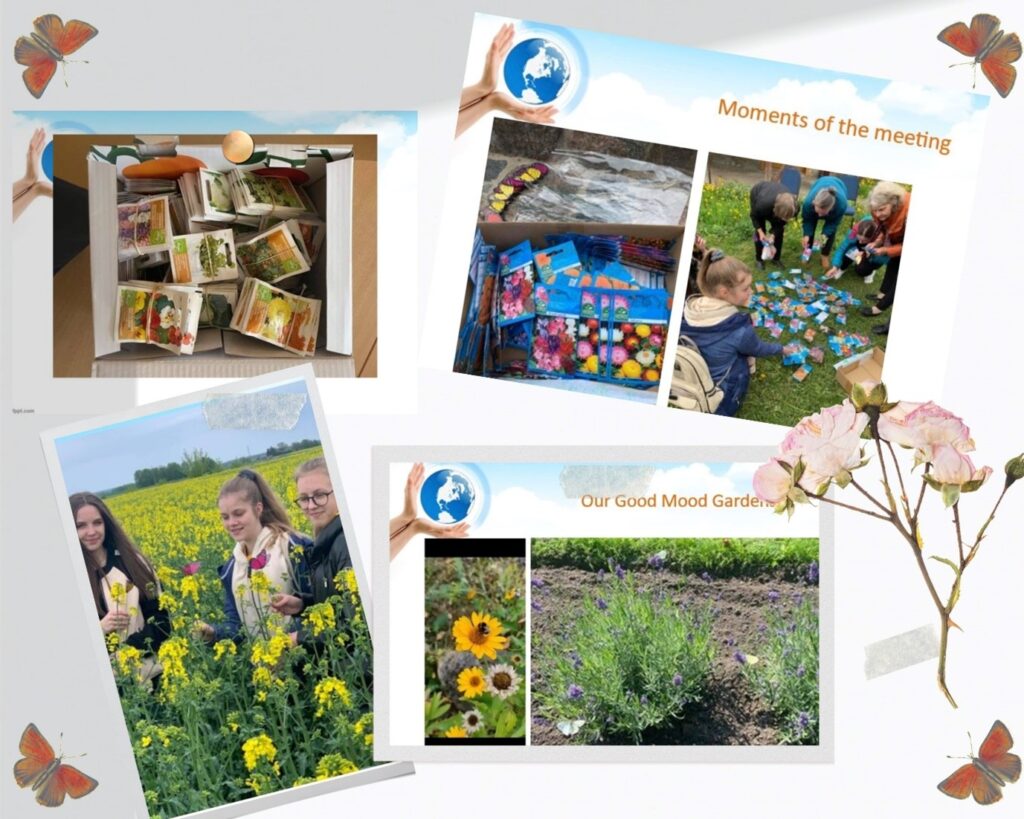
For Gheorghe Titeica School in Romania, their mission was the promotion of Outdoor School. The pandemic has caused a lot of stress, anxiety, insecurity, isolation among the teachers and students. Hence, the idea of transforming the school to an outdoor education came about. The students also participated in national project contest called ‘School in nature’ and became partners of ‘Life Education for all’, an association which initiated the campaign for outdoor education at national level. The association helped to promote the school’s project mission throughout the community and as a result, the school received supplies in the form of bean bags, relaxing armchairs, and mobile whiteboards until May 2022 for their usage. Other partners that were in support of their initiative are non-governmental Youth Communities Association (Association Comunitati Pentru Tineret) based in Craiova whose aim is to promote community development through lifelong learning educational programmes. The school also partnered with Exchange Volunteer Service who joined them in the outdoor English classes, workshops and activities in the Romanescu park. The volunteers were from Spain, Sweden, Argentina and Albania. Methods of teaching range from role play, games and debates to using music, theathre techniques, laboratory experiments, gardening, painting and Kahoot (a mobile app). The evaluation was in the form of a project-based learning.
The school also visited Carpathian natural protected area (one of the thirty national and nature parks in Romania) and the interactive museum at National Park Piatra Craiului. The students learnt life skills such as observation, exploration, critical thinking, and creativity; skills which facilitate personal development in the spirit of harmony and responsibility for life.
The students commented, “We can say that our Mission 1 changed ourselves a lot, brought us better collaboration, better communication and coordination in our groups, more creativity and developed our critical thinking. These partnerships, and eco-systems are really inspiring and we really felt like active participants rather than passive actors in our personal development /learning process. We appreciated the most the bond established between us , our teachers and the volunteers who really supported us to be much more motivated in our work. We realized wonderful projects related to nature, environment, sustainable green future and the other topics. The games and discussions about environment stimulated us to appreciate the harmony of nature, complemented our theoretical knowledge and we have become more protective of our Earth.”
The team’s future mission is to expand it and grow the network of partners as well as be part of the experiential learning programmes that READY FOR LIFE team (teachers, social & cultural animators) offer students during the summer holidays. Some of the students participated in READY FOR LIFE camp between 22-29 July in BRAN. The purpose of the camp was to seek new ways to learn and develop their life skills, continue nonformal activities, learn by play, explore nature and learn more about natural protected areas
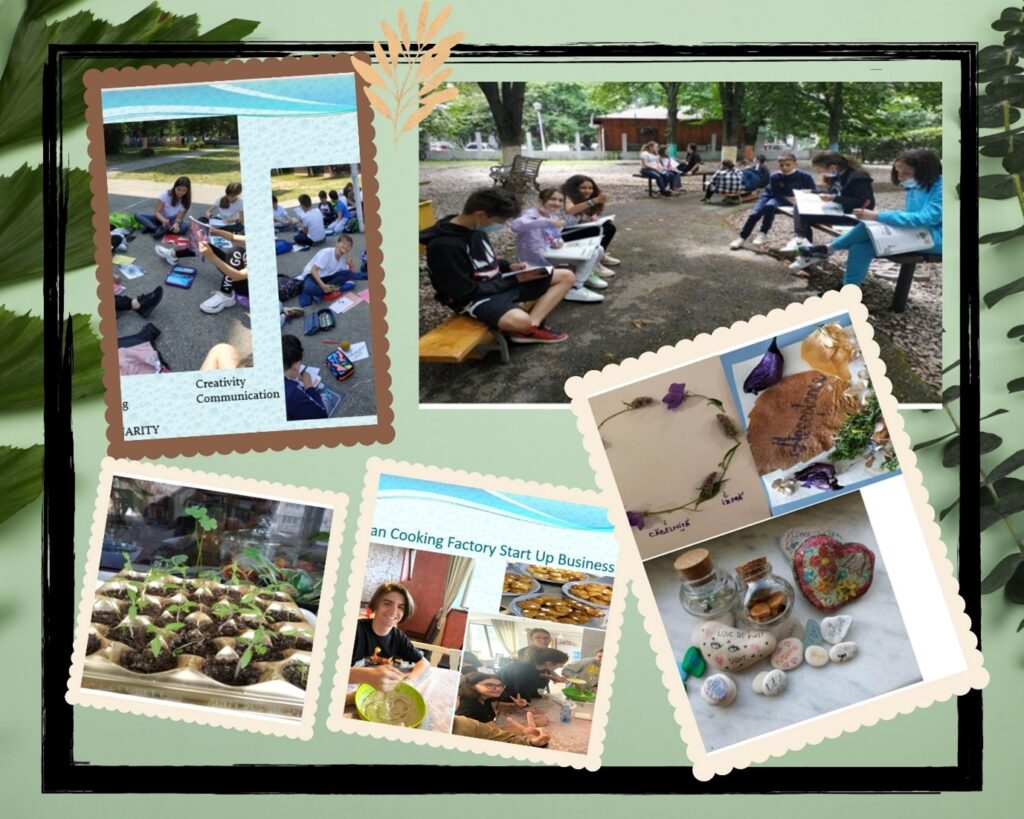
For ITU ETA Foundation College in Turkey, an initial simple mission to investigate animal and human digestive system changes to a more passionate mission which is investigating therapy with animals. Pets or generally animals add colour to our lives, be it dogs or cats, horses, birds and even fish. And these animals have a way to heal the sick, comfort the depressed and provides affection to those who need it. The team promoted the idea of having pets among its students and it was so successful that students started sharing their experiences with their own pets. The team surveyed Firat University staff, animal hospital staff and experts, slaughter houses, teachers, families and other community members to find out more about animals in general and therapy with animals. Their research revealed that pet therapy has positive effects on humans, especially during the pandemic. They developed a brochure which aims to send message to society about therapy with animals. Their next mission is to partner with Firat University to investigate the effect of animals on the level of happiness in humans. Their pet survey revealed that having pets in office helps reduce employee stress levels and leads to social and health benefits. Their next mission is to partner with Firat University to investigate the effect of animals on the level of happiness in humans. Students commented that having this project, which stemmed from their own idea, has made school more interesting as they learn not just by listening to teachers but by doing activities and being involved in the survey and visits to places.
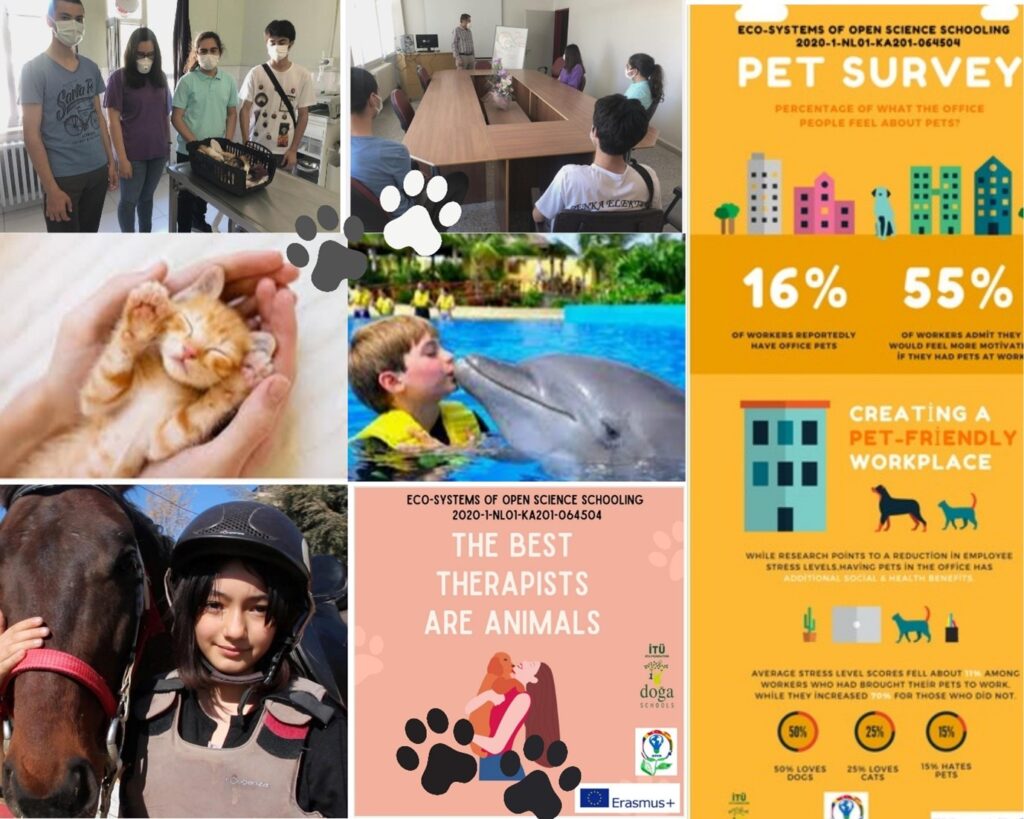
For Liceum Ogólnokształcące z Oddziałami Dwujęzycznymi im. Adama Mickiewicza in Poland, the students participated in various activities such as a DNA isolation workshop organized by BioCen (Biocentre of Scientific Education) and a lecture by a neurobiologist, professor dr hab. Krzysztof Turlejski from the Faculty of Biology and Environmental Sciences, UKSW in Warsaw. Study trips to Nasiłów, where on the slope of the Vistula ice-marginal valley lay layers of chalk from 65 million years ago which are rich in fossil remains and the Korzeniowy Gorge in Kazimierz Dolny, enhanced students’ knowledge and learning experiences. The school, with the cooperation of the Faculty of Biology and Environmental Sciences UKSW in Warsaw, also conducted an exhibition which displayed the collection of fossils.
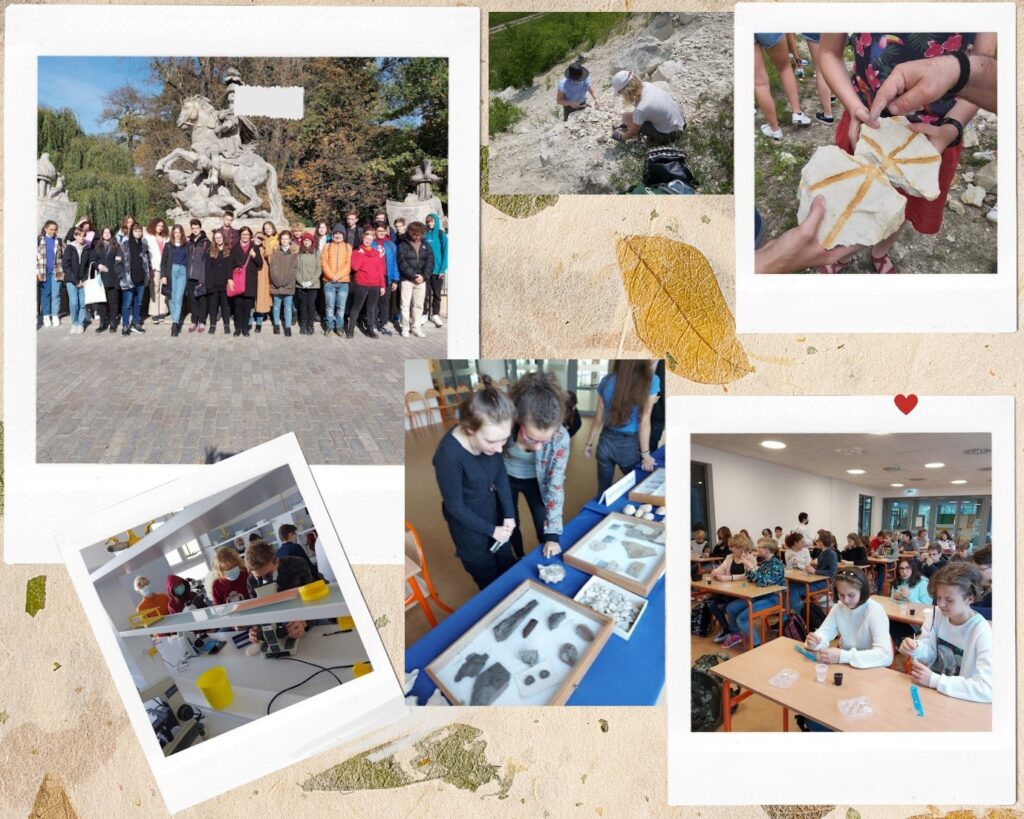
The success of the projects as well as the positive impacts the projects have on the society at large were applauded by all partners in the project.

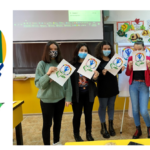 Previous Post
Previous Post
